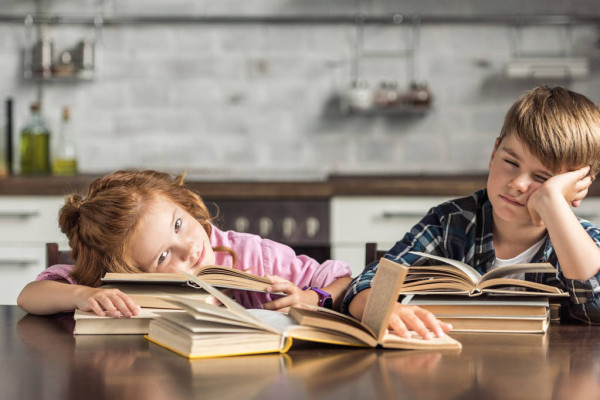Virtual Middle School, Even Worse Years of My Life?
April 15, 2021
How have you been feeling during the aftermath of heavy lockdown and current virtual schooling policies? Bored, unmotivated, or tired? What about free, less sleep-deprived, or having more time? You’re not alone!
During quarantine due to coronavirus, kids across the globe were required to adapt to the new virtual schooling model and later, the hybrid schooling model. The drastic shift in their lives has had interesting psychological effects on students. As coronavirus has started to ease its death grip on the world’s throat, students at Benjamin Franklin Middle School have decided to reflect on what it has been like learning online. At BF and other virtually instructed schools, surveys and interviews have been conducted in an effort to pry into the mysterious middle school mind. The results show various positive and negative changes in their behaviour, emotional health, and mental strength.
The preparedness of teachers during virtual schooling has shown to have major influences on students. When quarantine was first issued, teachers and administrators were scrambling like desperate chickens for a comprehensive schedule that effectively taught each student from home. As a result of their ill-preparedness, the first few months of school were confusing, and the schedule was difficult to manage. This led to poor student habits forming. It also led to confusion on both the teachers and the pupils’ sides. This is reflected in various schools’ vastly different student schedules.
According to the surveys, many have reported procrastinating more, paying less attention in class, extreme difficulty focusing on any work, and having little to no regular plans for daily work. As teenagers, the students’ brains are malleable like clay at the hands of life, and habits formed in this stage of life will likely become permanent. This means the effects of virtual schooling, which are mostly negative, can change the adult lives of an entire generation. This may possibly doom the entire human race, as the children of today will be in charge of tomorrow’s world.
Another major downfall of virtual schooling for students is the disconnect from teachers, guidance, and fellow classmates. During an interview with a Ridgewood school district coordinator of mental health, Mrs. DePinto reported that one of the students’ major struggles was with the isolation of learning essentially alone with little to no assistance from other students and teachers. They also were speaking less to emotional well-being assistants such as guidance counselors, so schools are less aware of the problems students face and how to help their virtual school experience improve.
Though the mental health coordinator claims that students are suffering from isolation and lack of connection, when information came straight from the source, not all students responded that they were feeling extreme disconnect in some areas. In a survey, people responded neutrally on their connections to family and friends. 50% have reported feeling more connected to their families and friends, while others say they have drifted apart. What’s going on, then? This may be due to how people like to get in touch. Half of those surveyed are content with a video call, while the other half require a meeting in person to truly catch up.
But what about the positive effects this new model is offering to students? Along with the distraction and boredom, some kids have learned and strived to make the best of their situation. For them, working in their homes has proved comfortable, convenient, time efficient, and freeing. Getting off class a few minutes early surely doesn’t hurt.
These students speak to the comfortable and freeing aspects of virtual schooling. Alexandra P. made this comparison: “In person schooling especially at the end of the day has rough kids who just want to stop working. People get distracted. At home it is quiet and music can be used to drown out any distractions in the home.” She, along with other students, have felt the gentle release from the stress and strictness of school.
Charlotte L. explained how she has experienced the freedom of online school, “I think being monitored more (in person) made things worse. I understand the constant monitoring and checking in but it felt excessive and like I was being babied. I am an independent worker and like to figure things out myself so this may only appeal to me.” For independent workers like Charlotte, keeping the aspect of virtual schooling that has less monitoring and more liberty will be beneficial. It may carry some of the positives from the torturous times of quarantine onto future life.
Many students have responded to interviews saying that they’ve been able to catch up on sleep too! Jett L. has stated, “With virtual school, I am able to have 30 minutes of extra sleep, which makes me less tired in the morning. This positive is impossible to have for in-person schooling because I need to wake up much earlier on a regular school day.” Teen students have famously irregular sleep schedules, so if virtual instruction is giving them even half an extra hour of rest, their health will improve.
All in all, this pandemic is an experience that nobody could’ve predicted. It hit the world like a five ton truck, and drove slowly back and forth. However, people, especially teens and children alike, were able to adapt to the shockingly new reality. Perhaps in the future, some of the positive elements of virtual learning can be incorporated into daily school life to oil the rusted gears of public education and make the average student’s life easier.

